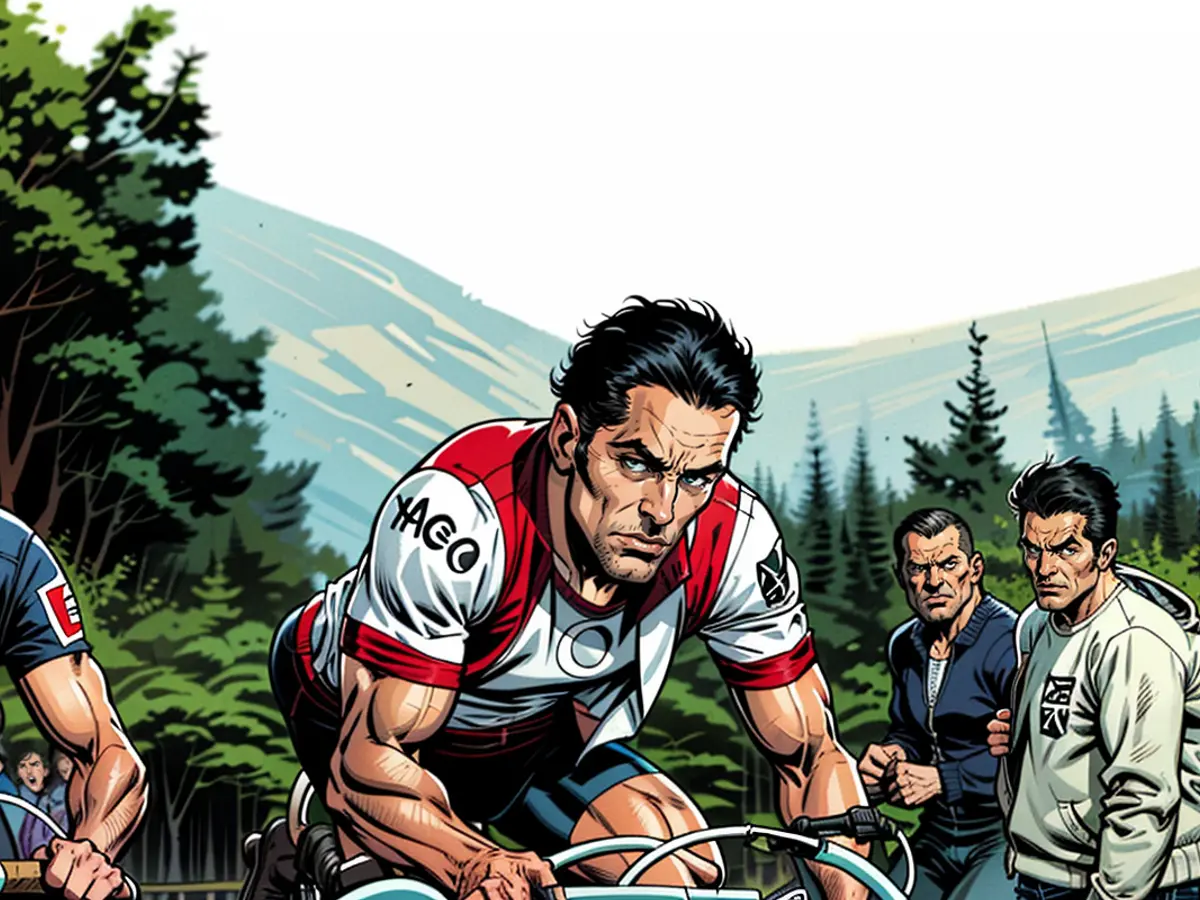Regrettably, Rolf Wolfsholt has passed away.
Rolf Wolfshohl, revered in Germany and cherished in France, has left us at the ripe age of 85. With his departure, the final German cycling legend from the golden sixties also bids farewell. Rolf was known for donning the yellow jersey at the Tour de France among other accomplishments.
He was a humble and dedicated soul, prioritizing hard work and effort over glamour. "I don't need anything else but my bicycle and mental work," he once said to a sports news agency. In true Wolfshohl fashion, he exited quietly and with no fanfare. "Le Loup", the nickname French fans affectionately gave him, breathed his last on a Wednesday at the grand age of 85.
Wolfshohl leaves behind a legacy marked by victories in Vuelta a España, Paris-Nice, and three cyclo-cross world championships. However, he gained notoriety for his consistent second-place finishes, a testament to his unyielding spirit as a champion without much fortune. Preceding him in death were Rudi Altig (2016), Karl-Heinz Kunde (2018), and Hennes Junkermann (2022). Now, their tales can only be told through books and old footage.
"A Biter, a Warrior, an Attacker"
As Klaus Angermann penned in "The Dream of the Yellow Jersey", Wolfshohl was a competitive spirit, "a biter, a fighter, an attacker; simply a racer full of passion". Fondly referred to as "Le Loup" by the French, Wolfshohl embodied these characteristics. However, his run as the Yellow Jersey was brief, lasting only two days before a crash sent him to the sidelines for an extended time because of bike replacement. Defying the odds, Wolfshohl managed to secure a sixth-place finish, his career-best in the Tour de France. From 1960 to 1971, Wolfshohl was part of formidable French teams alongside legends like Raymond Poulidor and Jacques Anquetil. The French admired Wolfshohl despite him often coming close but failing to bag significant victories, such as the second place finishes in Milan-San Remo and Liège-Bastogne-Liège.
Wolfshohl's life had its somber moments
Also, Wolfshohl reciprocated the French admiration. "I've always been captivated by the French's calmness. I have a heart for France," he confessed, displaying his shared affinity with the French culture, despite being a Rhineland native. If not wed in Germany, Wolfshohl might have relocated to Provence.
Wolfshohl's life was not without its tragedies. He battled a doping scandal in 1968, serving a four-week suspension, an era less stringent in anti-doping regulations. Post-career, life was unkind to him as well. His cycling son, Rolf-Dieter, met with a fatal accident at the German Championships in 1984, suffering a neck injury that left him paralyzed. He passed away in 2011 at the age of 51. Wolfshohl also lost his daughter prematurely.
Healthwise, recent years were challenging for Wolfshohl. "I'll accomplish something great when I turn 100," he had mentioned. Alas, the golden generation is now complete.
Despite being known for his achievements in cycling, such as his victories in the Vuelta a España, Paris-Nice, and three cyclo-cross world championships, Rolf Wolfshohl also gained notoriety for his consistent second-place finishes. These placements showcase his unyielding spirit as a champion without much fortune in the world of sports.
Fondly referred to as "Le Loup" by the French, Wolfshohl embodied the competitive spirit of sports with his attitude of being "a biter, a fighter, an attacker; simply a racer full of passion." His passion for sports was reflected in his career, which spanned from 1960 to 1971, where he was part of formidable French teams alongside legends like Raymond Poulidor and Jacques Anquetil.








